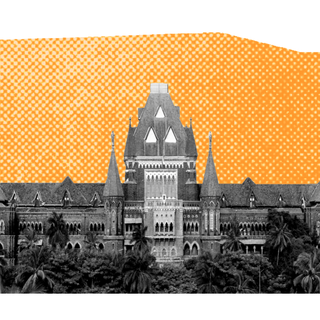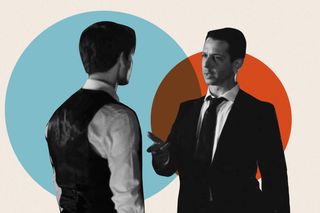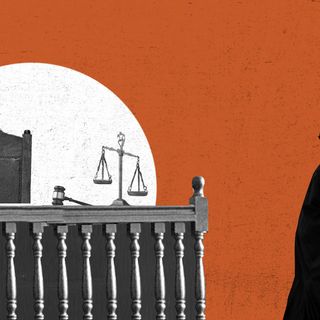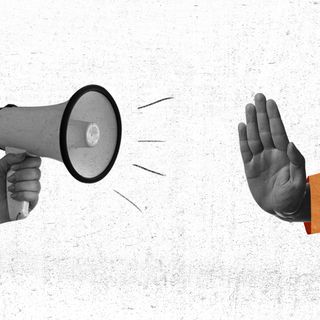
People From Higher Socio‑Economic Backgrounds Often Exhibit Lower Emotional Intelligence: Study
The meta-analysis suggests that higher socio-economic status can lead to increased self-focus, and less motivation to attend to others’ emotions.

Do you remember the scene from Lage Raho Munna Bhai, in which Sanjay Dutt advises a woman, who is meeting her potential match for the first time? He tells her to assess his personality based on how he treats the waiters at the restaurant they’re meeting — basically, if he’s rude to the waiters, he’s not a nice person.
While Dutt’s advice might not be the most foolproof way to judge someone’s character, it does make an important point about how people of more privileged socio-economic statuses in society tend to treat people who don’t share their privilege. The 2006 movie focused on the lack of empathy demonstrated by the woman’s potential match. But research suggests socio-economic privilege can extend to overall lower levels of emotional intelligence — of which, empathy is an integral part.
Published in Social Psychological and Personality Science, a series of studies found that people hailing from higher socio-economic backgrounds performed lower on tests to assess their emotional intelligence. Especially so, when they belonged to communities with higher levels of inequality.
In 2018, Uma Shashikant, in The Economic Times, wrote about an experience she’d had at a store. She noticed the store assistant being especially attentive to a female shopper, who had walked in “simply dressed and quiet in demeanor.” Turns out, she did buy a bunch of high-priced items soon and left. This left Shashikant intrigued about how the store assistant could’ve predicted the woman’s economic status. “His answer was simple: she did not care to look at or be interested in anyone else in the shop, but focused only on the goods,” Shashikant, chairperson of the Centre for Investment Education and Learning, wrote.
Related on The Swaddle:
Are We Becoming Less Empathetic by Choice?
The store assistant’s insight coincides completely with one of the findings from the present study: greater socio-economic privilege translates into higher self-focus, and less motivation to care about the emotions of others.
The researchers do have hypotheses to explain why that is. According to them, the greater one’s socio-economic privilege, the greater their share of resources. As such, they’re less likely to turn to others for support. “[T]hose in the lower classes, unable to simply hire others, rely more on neighbors or relatives for things like a ride to work or child care,” a New York Times article states.
In time, this leads people from a higher rung of the socio-economic ladder not caring about the emotions of others because their privilege shields them from the need to engage with others’ emotions, the researchers believe.
Narrating an instance she witnessed in real life, Sophia Nynnyat writes, “Once a professor was called to deliver a talk in our college. When he was having lunch, a boy was serving the food. He asked the boy’s name which turned out to be a Muslim one. He looked at the boy from bottom to top and teased the boy in front of the other professors. ‘Why are you clean shaved? Why aren’t you sporting a beard? You should be wearing a skull cap!’ he said laughing.” She added that the professor was Brahmin, and wondered if it was his social privilege as a Hindu cis man atop the caste system that had rendered him unable to see how the “explicitly communal” and “implicit[ly] casteist connotations” of his comment could affect others.
Related on The Swaddle:
Why We Are Able to Empathize With Some, Never All
Can years of privilege, then, reduce one’s ability to empathize? And, if stripped of their socio-economic privilege, will they continue to display lower levels of emotional intelligence? The present study doesn’t answer these questions.
However, a study from 2018 says that the “material conditions in which people grow up and live have a lasting impact on their personal and social identities and that this influences both the way they think and feel about their social environment and key aspects of their social behavior… Working‐class people score higher on measures of empathy and are more likely to help others in distress.”
While the study is new, its findings are something we’ve been aware of for a while now — at least, subconsciously. In fact, Munna Bhai 2 wasn’t the only piece of pop culture to depict how the lack of emotional intelligence plays out in interactions between people with different levels of socio-economic privileges. Recently, in Succession, the lack of empathy Kendall exhibits towards the waiter he accidentally kills is another testimony to that. While he feels a strong sense of guilt, he struggles to navigate the emotions of the waiter’s grieving family, and respond accordingly.
As Scientific American once wrote, “As riches grow, empathy for others seems to decline.”
Devrupa Rakshit is an Associate Editor at The Swaddle. She is a lawyer by education, a poet by accident, a painter by shaukh, and autistic by birth. You can find her on Instagram @devruparakshit.
Related


A Brief History of How Indian Judges Get Transferred in Crucial Cases
